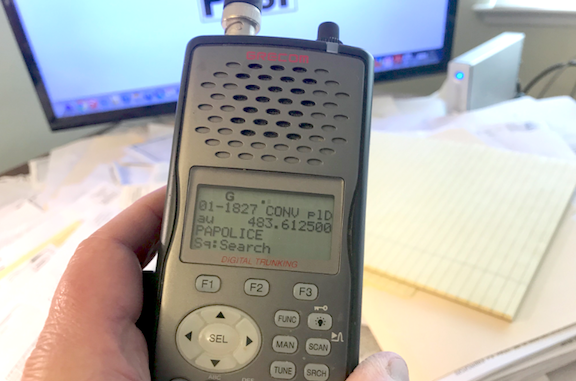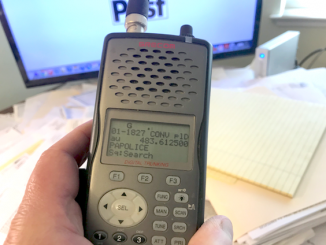
Palo Altans expressed outrage over the attack of a sleeping man by a Palo Alto police dog and they called upon City Council to end the encryption of police radio transmissions. And several council members pressed police for greater transparency with the press.
Council ran out of time during its 90-minute study session on the police Monday (April 5), but not before Mountain View resident Salim Damerdji told council “it’s absolutely outrageous” what happened to Joel Domingo Alejo.
Alejo is the man who was sleeping in his backyard on June 25 when he was attacked by a police dog being handled by Palo Alto police Agent Nick Enberg. Enberg, who had been asked by Mountain View police to search for a kidnapper, commanded his dog to repeatedly bite Alejo before discovering he was the wrong man. Now Alejo has filed claims against Palo Alto and Mountain View for $20 million.
“I appreciate the chief’s words when it comes to transparency and accountability, but there was no accountability here for officer Enberg, and there has not been transparency when it came to this case,” Damerdji said. “I suspect that Palo Alto’s police department did not want to be as transparent about what actually occurred in this incident in the middle of calls for police reform last year, and it’s clear that police reform is absolutely needed in PAPD.”
Tang said that Enberg was named as a defendant in the lawsuit from Tajae Murray, a Palo Alto High School student, whose family sued the city for injuries sustained from a 2016 police dog attack. The city paid Murray and his family $250,000 to settle the suit.
Enberg was named as a defendant in a lawsuit from Julio Arevalo, who sued the city in 2019 after he was violently arrested by Police Agent Thomas DeStefano outside Happy Donuts on July 10, 2019.
“At least think about the fact that he’s making you look bad,” Tang said. “Please be more transparent and hold Nick Enberg accountable.”
Jonsen said he encrypted the radio transmissions following a memo from the state Department of Justice that advised police departments to keep certain personal information and law enforcement data off the public airwaves.
Councilman Greer Stone and Vice Mayor Pat Burt wanted Jonsen to come up with options that would protect privacy but still allow the public and the press to listen to police activity on the radio.
“I think this is an issue that’s really impeding the First Amendment of the right of the press to do their job in being a check on our government,” Stone said Monday. “And I understand it’s difficult to develop and implement a new policy, but the First Amendment sets a floor that we can’t constitutionally fall below. And we’re not meeting that standard here.”
While Jonsen said police have been searching for alternatives to the encryption, he said he hasn’t found a viable alternative that he believes would work.
Chicago and Orange County are two departments that have a public dispatch channel and a second encrypted channel for confidential information.
But Police Capt. April Wagner told Stone that because of last year’s budget cuts, the department doesn’t have the number of dispatchers necessary to monitor an additional radio channel.
“It seemed like his focus was on local law enforcement agencies not being able to find solutions. I’m sure there are solutions out there if we cast a wider net,” Stone said. “ “There are other alternatives. I’m not convinced that they’ve been fully explored yet.”
And Stone said the city “really should not get in the habit” of releasing information on police attacks that lead to injuries months after they occur. He said this after news of Alejo’s attack came six months after the incident when the Post obtained a claim Alejo filed over the dog attack seeking $20 million. The Post also had to file public records requests to obtain body-cam video of the attack.
Burt said he wanted the police matter to return to council and, in the meantime, he suggested police find a way to allow reporters to once again ask questions of an actual police officer.
At the next meeting on police, Burt said he not only wants to see changes proposed on encryption and press access to police, but policy changes regarding the use of police dogs.
Burt added he wants the city to contact its lobbyist in Sacramento to see if any of the state’s legislators would be willing to put a bill through that would prohibit encryption.



